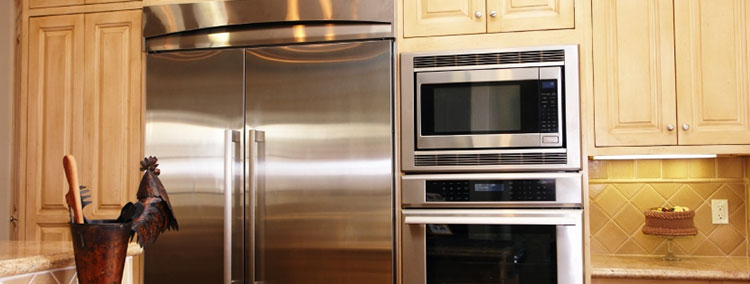
Would you love to keep your fridge in perfect working order and keep off refrigerator repair professionals? You should keep these fridge rules into consideration:
Keep the fridge at the right temperature
Setting the fridge at the optimal temperature not only keeps your food fresh, but also prevents it from overworking. The ideal fridge temperature is between 1c and 4C as you have to keep the food at 5C or lower. If you recently visited the grocery store, so the fridge is full, keep the temperature settings a little lower to save energy.
If it’s empty or cold, keep the temperature a little high.
Besides doing this, make it a habit to defrost your appliance when the ice is more than 5mm thick or prevent the air from circulating as effectively as it should.
Keep the fridge clean.
It goes without saying that you have to keep the fridge in top shape to keep it clean. As a rule of thumb, clear any spillages as soon as they happen. You should also wipe down the handles daily and clean the door outside at least once a week.
Regularly inspect the shelves and containers for lackluster or out-of-date food items and remove them.
At least once every three months, empty the refrigerator and draw out all the removable parts (drawers, shelves, and racks), then wash them with hot water and washing liquid.
Never use bleach or any non-food-safe chemical cleaners.
If the fridge is too dirty or you have gone for a long time without cleaning it, you need to deep clean it. To do this, use a toothbrush and thick paste of bicarb mixed with water and get rid of any stains.
You should then unplug the unit and clean it by hovering underneath and behind it. You should also remove any vented covers and reach the dust-coated fans and coils.
Store the right things in the fridge
What you store in your refrigerator goes a long way towards maintaining sanity in your appliance. Don’t store opened tin cans in the appliance as once you open them to the air, the tin from the can can transfer more quickly to the can’s contents.
Only place cans that come with resealable lids in the fridge, and always decant leftovers.
You also shouldn’t refrigerate hot food as they cause contamination and mess up the fridge temperature, causing it to overwork.
If you want to store your food in the fridge, wait for it to cool completely.
Some of the items in the fridge include: milk, yogurt, all berries, citrus, fish, and any opened products that specify refrigeration once opened.
Eggs require consistent temperatures so if you bought them refrigerated, keep them that way.
You also should keep large tubs of nut butters that you don’t need immediately and open pickles and jams.
Place the items on the right shelves.
Placing the right items in the refrigerator isn’t enough—you need to put them on the right shelves.
Top shelf: This shelf belongs to the items that don’t need cooking. These include: dips, sliced meats, deli dishes, leftovers, tortilla wraps, etc. This shelf is also perfect for any unfinished tin cans.
Middle shelf: The best items to store here are dairy and eggs. Don’t store the items on the door racks or egg holders to avoid damaging your door.
Bottom shelf: You place meat and fish here
Vegetable drawers: These are designed for fruits, vegetables, herbs, and leaves. Lettuce and other greens belong here.
Store all soft, fresh herbs (except for basil) here.
Door racks: Door racks are for juices, condiments, spreads, and other items with long shelf lives.
Undertake regular inspections
After buying, most homeowners don’t inspect their appliances, which is wrong. To ensure that your unit is in top working condition, make it a habit to inspect it at least once a year. Go around the unit and find any issue it might be having.
You can inspect yourself or hire an appliance repair Springfield professional to help you out. When hiring the repair expert, ensure they are experienced and know what they are doing.
The post 5 Rules for a Perfect Fridge first appeared on HVAC Repair, appliance repair. The post appeared first on Express Appliance Repair